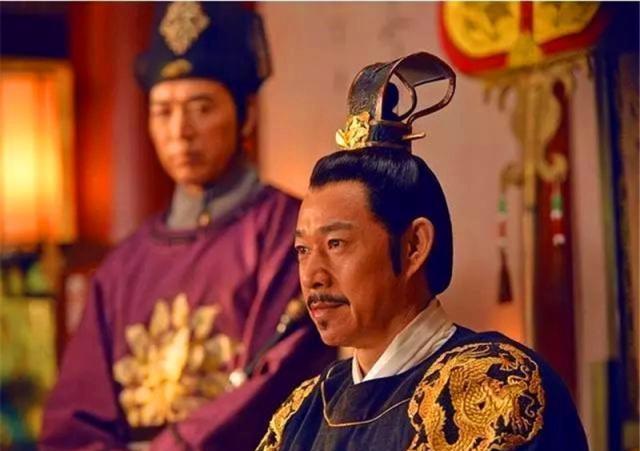(/ Wenhua blossoms without fields / figure network pictures, if there is infringement, please contact the author, must delete)
Recently, a second-instance judgment was handed down in a case, and he was sentenced to death for intentional homicide. The reason why this seemingly ordinary case has become a hot spot on the Internet is undoubtedly because of its motives and "there are reasons for the incident". Revenge for the mother also became a starting point for people to sympathize with it.
So in ancient China, what kind of culprit was it to avenge one's mother? Because of the criminal laws of various dynasties and generations, it is complicated and lengthy. And let the editor take you to take a look at a case of revenge for the father in "Tang Law", so that we can understand it.

Tang Xuanzong, played by the famous actor Chen Baoguo
In the twenty-third year of Tang Kaiyuan (735), the 13-year-old Zhang Yu and his brother Zhang Xuan, who was only 11 years old, killed the poet Yang Wanqing in the poet's palace at Luoyang Dangjie, and the reason was that Yang Wanqing framed his father and died. For such a case, the matter is clear, the regulations are clear, and the father of the two, Zhang Zhensu, is indeed wronged by death, and the young two are able to avenge their father, which can be called filial piety.
After Emperor Wu of the Han Dynasty deposed the Hundred Families and exalted Confucianism, Confucianism also became the ruling ideology of successive dynasties. In the ethical system represented by it, filial piety has become the foundation of the human order of society.
In the Confucian classic, the Book of Rites and Rites: "The enemy of the father and the common heavens, the hatred of the brothers does not rebel against the soldiers, and the enemies of the travels are different countries." "It is also clear that it supports this act of revenge for the Father."
In the Eastern Han Dynasty's "Biography of the Ram", it is proposed that "no revenge, not the son". As a cultural inheritance, the "filial piety" that Confucianism has always emphasized has also become the cornerstone of governance emphasized by successive rulers of successive dynasties.
However, as a statute law at that time, in the Tang Law, there was no explicit regulation on such blood revenge, but it was included in the killing, and the guilt could not be exempted. But in this case, the law and the idea of governance also clash. As two in the table of each other, but also because of this case has become a point of contention.
Etiquette
For Zhang Jiuling, who was the prime minister at this time, because there was nothing wrong with avenging his father, he should forgive the light sentence, but Li Linfu and Pei Yaoqing objected, and Li Longji, as the decision-maker, said to Zhang Jiuling, "Although filial piety is pitiful to take revenge, it is not easy to kill people and be exonerated." As a result, zhang yu and Zhang Xuan were sentenced to be killed. As a people who have accepted the traditional Confucian etiquette, there is naturally an uproar. There are those who write eulogies, and some people bury the two of them.
Fu Ya
And under the judgment of Tang Xuanzong, it is not difficult to see that he sympathizes with the Zhang brothers, but undoubtedly puts social stability first and puts an end to this kind of folk revenge, which is also the best choice.
And it was precisely a few decades later that Emperor Xianzong issued another case of filial piety and revenge, and Han Yu, as a reader at the time, naturally understood the crux of this dispute between the internal and the superficial, so he cleverly took his acting power as the central ruling: "Whoever restores the enemy of the father, the incident, has the Shen Shangshu Province gathered to discuss and hear, and deal with it according to his own convenience." The way "Tang Law" deals with "revenge" is also clear.
References: Tang Law, Ram Biography, Book of Rites, History of Tang, etc